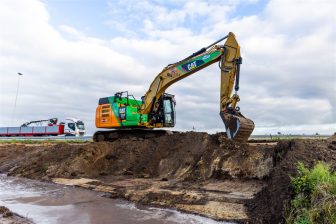ADB assists PRC water pollution management project
MANILA, PHILIPPINES – The Asian Development Bank (ADB) will assist the People’s Republic of China in developing a system to manage water pollution, which may have already reached an alarming level across the country.
The Policy Study on Market-Based Instruments for Water Pollution Control seeks to strengthen water pollution management systems to help the country achieve its water pollution control target more effectively and efficiently. The project will develop a set of policy advice and recommendations that will serve as basis for introducing market-based instruments and mechanisms to combat the country’s severe water pollution problems.
ADB will provide a $500,000 grant for the project, which is estimated to cost $650,000. The balance will be covered by the government.
The country has been experiencing rapid economic expansion since the late 1970s, maintaining an average annual gross domestic product growth of about 9% and lifting 450 million people out of absolute poverty.
“Along with the rapid growth, however, the country has been faced with the increasingly difficult task of controlling environmental pollution, resources depletion and ecological degradation. Despite government efforts and investment, the country has yet to arrest these problems,” said Yue Fei, senior social sector economist of ADB’s East Asia Department.
Water pollution has emerged as the most pressing environmental concern due to the frequent outbreaks of water pollution incidents in nearly all the water systems across the country. During the implementation of the country’s 10th Five-Year Program 2001-2005, the government set a performance target of a 10% reduction in the overall discharge of chemical oxygen demand, an indicator that measures the effectiveness of water pollution control. Instead of declining, the discharge of chemical oxygen demand rose by 2% during the program period.
Many major chemical oxygen demand dischargers, mostly industrial manufacturers, resumed their operations soon after temporary closure under administrative and political pressures from the central authorities.
A large number of wastewater treatment facilities are also being operated at less than 30% of their designed capacity. Some of the newly constructed wastewater treatment facilities have remained idle.
To reverse this trend and further enhance water pollution control, the government has determined to set once again for the 11th Five-Year Program a mandatory performance target to reduce the chemical oxygen demand discharge by 10% using 2005 as base year.
“The situation calls for a more effective water pollution control mechanism than the traditional command and control system and the physical infrastructure-centered approach,” said Mr. Fei.
U las zojuist één van de gratis premium artikelen
Onbeperkt lezen? Profiteer nu van de introductieaanbieding voor € 10,- per maand.
Bent u al abonnee?



